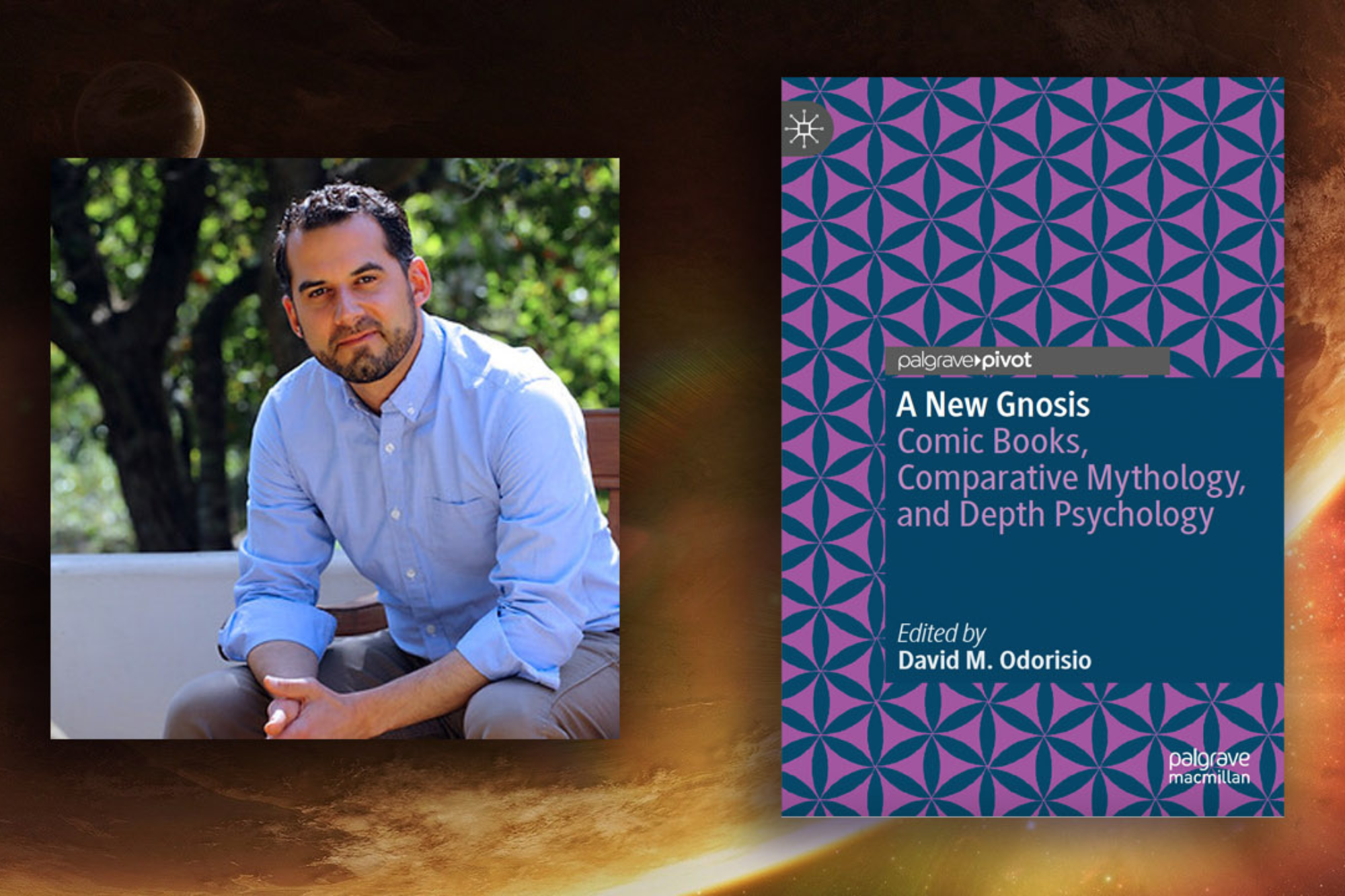Congratulations to David M. Odorisio, PhD, Co-Chair of the Mythological Studies program, on his recent publication, “A New Gnosis: Comic Books, Comparative Mythology, and Depth Psychology”.
This newly published collection of essays examines the Superhero phenomena as it exploded into 20th- and 21st-century popular culture by way of the visual medium of comic books. In an increasingly secular (yet spiritual) culture that has largely renounced “the gods” (and even religion), what does the return of the superhero through our own pop cultural mythologies say to us―or even about us? In A New Gnosis, the interpretive tools of comparative mythology and depth psychology are placed alongside the comic book phenomenon to reveal a super-powered palette that unveils the hidden potential of modern readers’ own heightened imaginations. The essays in this anthology examine select comic book and superhero characters from the “Silver Age” 1960s through contemporary 21st-century adaptations and innovations, as readers are invited to discover and uncover what the (re)emergence of these perennial gods and goddesses have to say about our own secret super selves today
- Explores ‘the superhero’ as representative of a uniquely emergent modern mythology
- Uncover what the (re)emergence of these perennial goddesses and gods have to say to us about our secret super selves
- Applies the analytical tools of comparative mythology and depth psychology to the superhero genre
“Superhero comics and science fiction…can and do function as transmission sites for what David Odorisio has called the “new gnosis.” Superpowers are real. So are the altered states of knowing and excessively weird paranormal phenomena or “special effects”…that often lie behind the conception and within the very artistic execution of these genres on the page, on screen, and in life. This is, by far , the most important resonance between [my own Mutants and Mystics] and this book—the gnostic transmission. I would immediately add that the vast, vast majority of such psi-fi gnostics will never be known as such. They exist silently in the margins of the culture, which, paradoxically, is also somehow the center.” —Jeffrey J. Kripal, from the Afterword Superhero phenomena exploded into 20th- and 21st-century popular culture by way of the visual medium of comic books. In an increasingly secular (yet spiritual) culture that has largely renounced “the gods” (and even religion), what does the return of the superhero through our own pop cultural mythologies say to us—or even about us? This collection of essays from leading and up-and-coming scholars in the fields of comparative mythology and depth psychology considers the return of the superhero as representative of our own unique emergent modern mythology: a wildly diverse pantheon that reflects back to us our most far-reaching hopes and (im)possible (super)human desires. In placing the interpretive tools of comparative mythology and depth psychology alongside the comic book phenomenon, a super-powered palette emerges that unveils the hidden potential of modern readers’ own heightened imaginations.


